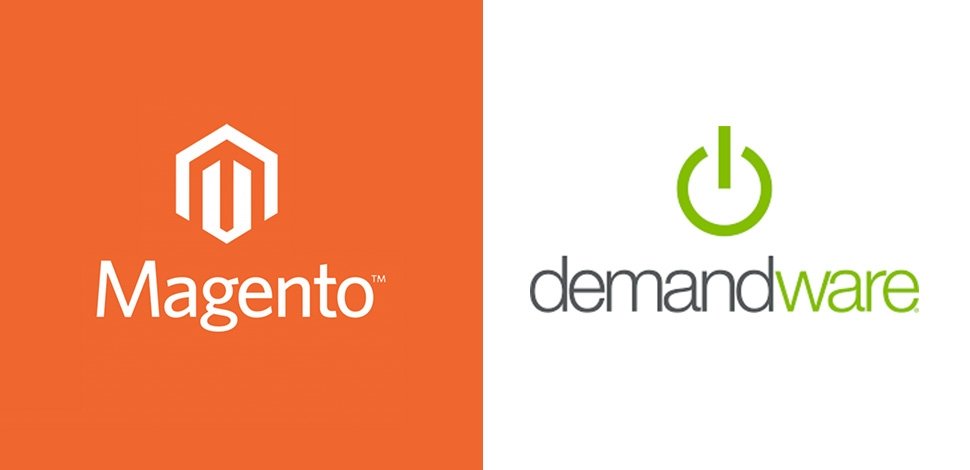Comparison Of Platforms For Large Magento And Demandware Shops

In the case of small online stores, the choice of a potential platform is really high Woocommerce, Shopify, X-Cart, Zen Cart, Prestashop, Open Cart, osCommerce and dozens of other platforms compete for the choice of sellers. But what about large online stores that require Enterprise-class software? There are just a few sensible solutions, the most important of them is Hybris, belonging to SAP, Demandware belonging to Salesforce and Magento belonging to Adobe. The following article will focus on the comparison of the last two.

COMPARISON OF MAGENTO AND DEMANDWARE
Both platforms are selected by companies expanding the fastest. Brands such as Missguided, Coca-Cola or Nike chose Magento Commerce, on the other hand, Adidas, Lacoste or Kate Space chose Demandware. There is no doubt that both platforms are Enterprise-class software, but there are significant differences between them, both have different functionalities and are addressed to different types of vendors.
THE MOST IMPORTANT DEMANDWARE ADVANTAGES
High scalability, without the need for additional optimization
Development of sales tools and personalization
Further development of omnichannel functions
THE MOST IMPORTANT BENEFITS OF MAGENTO COMMERCE
Flexibility in terms of expansion and adaptation to needs, having a large community developing new functionalities
Excellent functions in the B2B area
Development of multistore capabilities
MAGENTO FUNCTIONS VS DEMANDWARE FUNCTIONS
Magento Commerce is a well-known scalable e-commerce platform with extensive sales capabilities, multiple store management from a single panel, international sales, B2B functions, and customer segmentation. Among the newest functionalities, we can distinguish integration with CMS Bluefoot, Magento Business Intelligence Pro enabling the analysis of large datasets suited to the needs of a given company, so-called visual merchandising allowing for any way of configuring products on the website. The latest B2B module in Magento Commerce is considered the most modern solution of this type in the world, additionally supported by a modern order management system that is very impressive.
Demandware, on the other hand, has comparable functionalities in most areas but is somewhat stronger in terms of sales and personalization. Salesforce Commerce Cloud (Demandware version) is most often chosen by the fashion industry and is best suited for this type of business, although Magento has many fashion brands using its software.
The cost of the license to use Magento Commerce is slightly lower than the cost of Demandware, at the same time the platform can be easily modified and adapted to the needs of the company. Both platforms are able to handle large traffic, both have a portfolio of sellers perceived as prestigious brands. Demandware is still seen as vendor software partly due to the broad possibilities of “higher level” integration, while Magento is still recovering from the reputation of the platform for the masses. To make the final choice, the most important factors to consider are budget, flexibility, and individual requirements.








